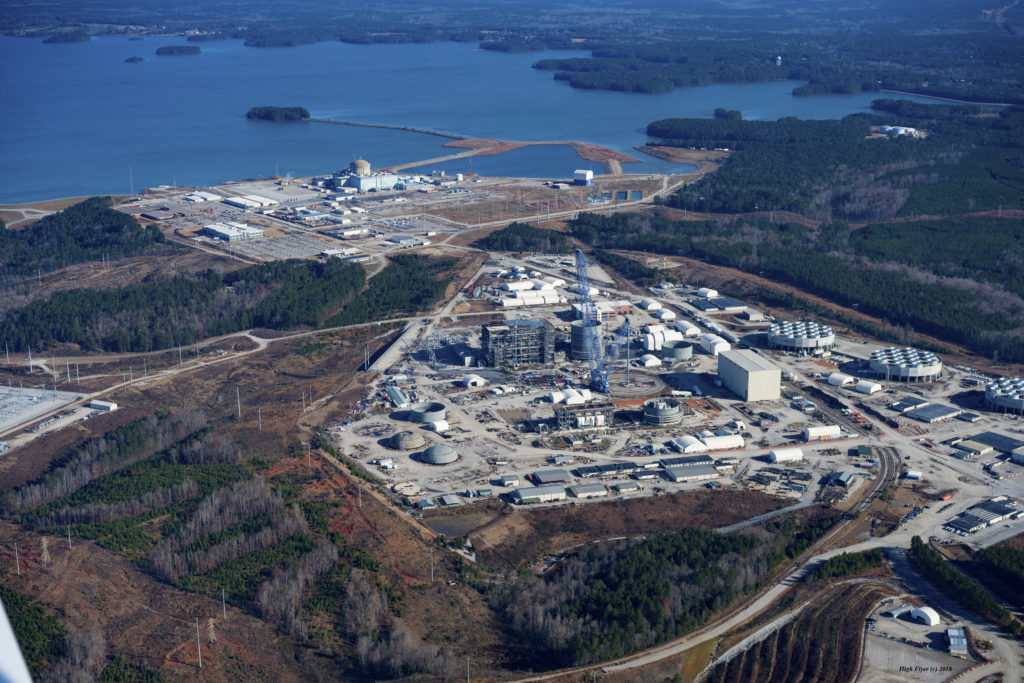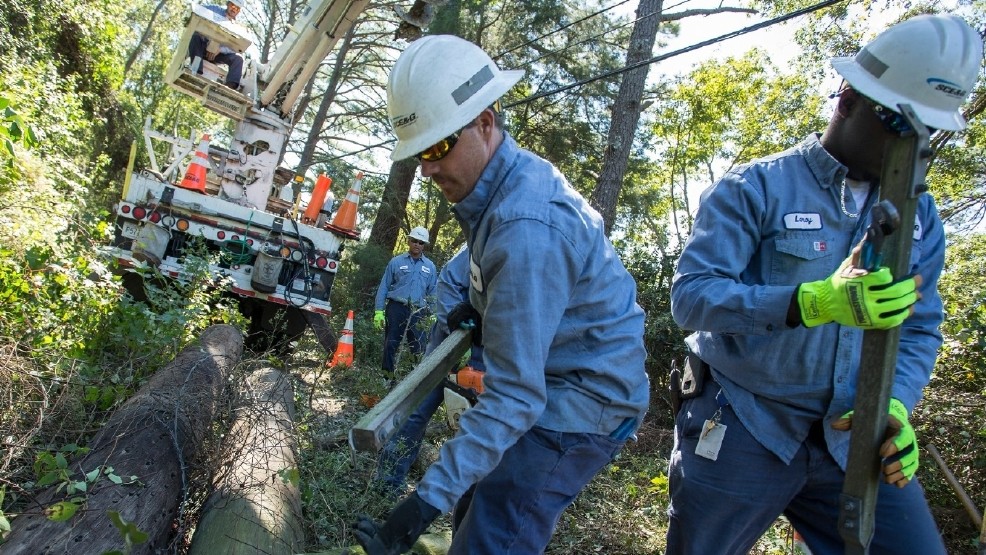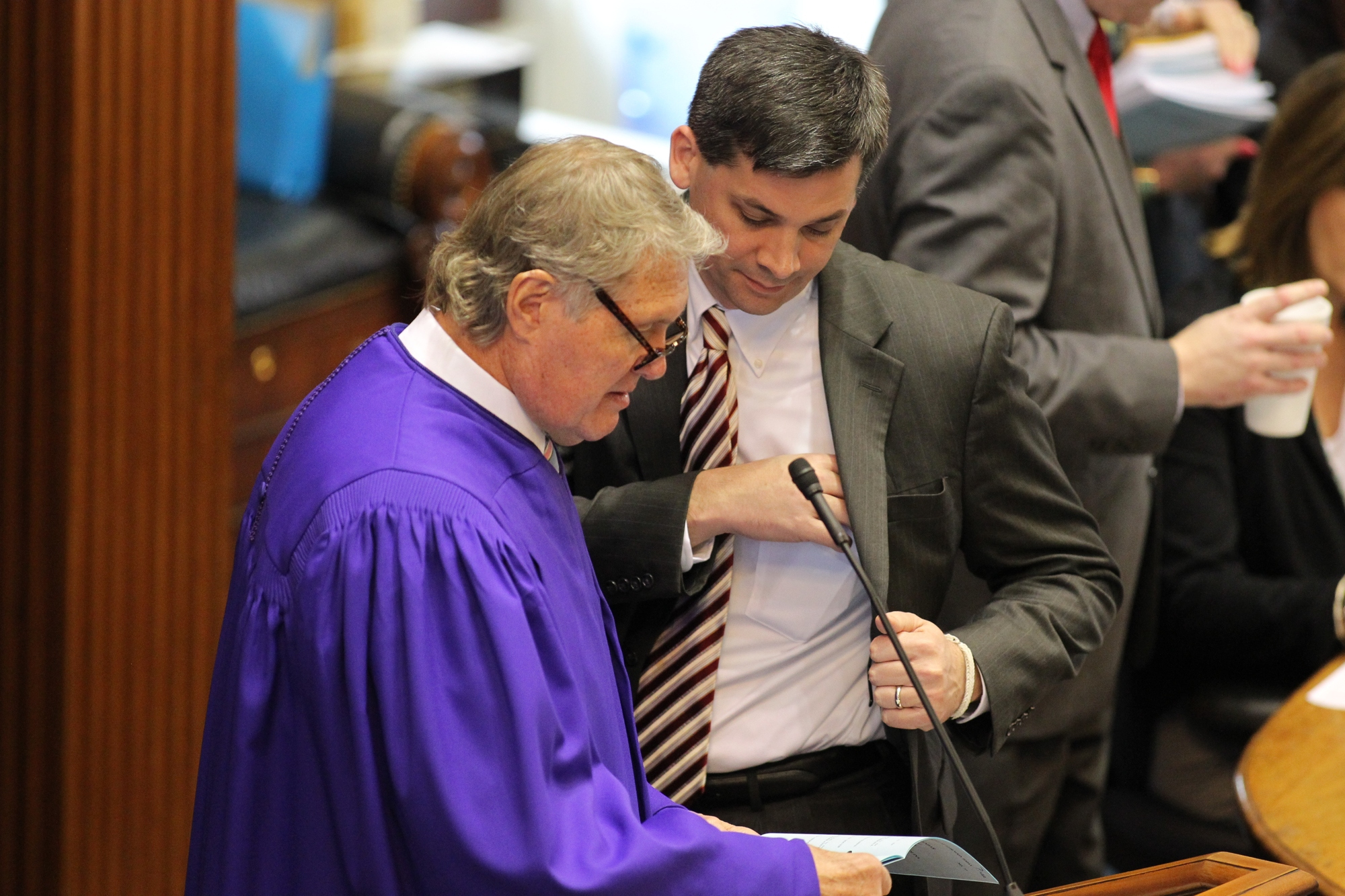This news outlet hasn’t written about securitization in some time … first because the subject tends to bore people to death and second because the issue was supposed to be dead and buried within the South Carolina General Assembly this year.
Why write on something mind-numbingly obtuse if it is never going to happen, right?
The issue is back in a big way this month, though … a development that appears to have caught many lobbyists at the S.C. State House off guard.
Legislation originally filed way back in December by S.C. Senate majority leader Shane Massey is suddenly on the front burner again – receiving an extensive treatment earlier this week by reporter Avery Wilks of The (Columbia, S.C.) State newspaper.
Of course, securitization is not just the focus of a renewed media push. There is the very real possibility of imminent legislative action on this issue – which supporters insist could save ratepayers between $400 million and $1 billion over the next twenty years in connection with #NukeGate, state government’s spectacularly failed command economic experiment in the nuclear power industry.
The S.C. Senate judiciary committee – led by senator Luke Rankin – will hold a hearing (.pdf) on Massey’s bill, S. 110, on Thursday, April 25 at 2:00 p.m. EDT. If the legislation makes it out of this committee, a contentious floor fight could ensue.
Such an outcome would be unheard of considering Massey’s bill has been languishing in a Senate subcommittee for months.
Rankin, incidentally, is among the architects of the #NukeGate debacle – which was supposed to have produced a pair of next-generation, pressurized water reactors at the V.C. Summer nuclear generating station in Jenkinsville, S.C. in 2016 and 2017, respectively.
That didn’t happen …
(Click to view)

(Via: High Flyer)
Midway through 2017 the reactors (above) were discontinued – and ultimately abandoned, costing thousands of jobs and throwing the state’s energy future into chaos. Sadly, this abandonment occurred after project had drained the state (and its ratepayers) of nearly $10 billion … and counting.
Sound criminal? Yes …
In the aftermath of the debacle, the private sector corporation involved in the project (SCANA) was sold off to Virginia-based Dominion Energy – while the status of its state-owned “partner” (Santee Cooper) remains in limbo. State lawmakers have been making noise about selling Santee Cooper, but at this point the utility would only command a fraction of what it was once worth.
The sale of SCANA was approved in December by the S.C. Public Service Commission (SCPSC), a governmental entity which regulates utilities in the Palmetto State. It came after nearly a year of contentious negotiations between lawmakers and Dominion over the terms of the sale – including a debate over whether to provide $1.3 billion in upfront ratepayer relief related to #NukeGate or to provide larger amounts of relief over time.
Lawmakers and regulators eventually insisted on the latter plan … although in true “have/ eat cake” style, many of them have since complained about the rebates not being provided to their constituents. Some lawmakers have even insisted Dominion should cough up the $1.3 billion in ratepayer relief the company originally wanted to provide – prior to legislators shooting down that proposal last June in pursuit of a larger payday over time.
How does that work, exactly? Good question …
Securitization appears to be the latest effort by lawmakers to “(change) the rules to the game after the game has been played,” to use a quote Wilks received from state senator Brad Hutto.
[su_dominion_video_scb]What is securitization? Basically, utilities (especially those operating in virtual monopolies) enjoy guaranteed customer bases – future revenue streams which can be relied upon by financiers. These streams can be used to secure a bond, which can then be sold to raise money to retire debt or expand infrastructure.
According to the website Energy Vortex, securitization is “most commonly used to recover stranded costs … (but) can be used for virtually any funding purpose.”
It’s not easy to get such deals approved, though … in any political climate.
“Before the security can be sold, a legislative body usually has to approve its issue,” the site noted. “This is because there will be added costs incurred as a consequence of issuing the security, and those costs will have to be passed on to the consumer in some fashion. Eventually this security must be paid off. For example, if it’s a bond, the principal and interest will have to be paid to investors when the bond becomes due for payment. Utilities are frequently allowed to add a non-bypassable charge to their customers’ bills to cover the costs of the bond’s principal and interest.”
Not to mention a little extra for shareholders …
“Securitization has been used to finance market transitions and large one-time event costs such as storm recovery,” one industry website noted. “Securitization methods share common elements, including extended collection timeframes, reduced carrying costs and recognition that alternative financing is beneficial to ratepayers.”
Massey’s securitization bill would rework the structure of the #NukeGate debt currently being paid off by ratepayers – stripping out any profit for Dominion. Getting rid of those payments would make the borrowing costs related to securitization much cheaper.
Do we support that idea?
Hell yes …
(Click to view)

(Via: SCANA)
There is just one problem, though: Dominion is in the process of providing more than $2 billion in ratepayer relief over the next twenty years in connection with the plan regulators approved in December.
This long-term ratepayer relief never would have happened had securitization been a part of the equation. In fact, Dominion negotiators explicitly told the SCPSC they would withdraw the company’s offer to purchase SCANA if securitization were included.
Now lawmakers want to impose it after the fact?
We hate to agree with Hutto, but that is the definition of changing the rules after the game has been played.
In other words, it is the rebate debate all over again …
“Have/ eat cake.”
Don’t get us wrong: We love the idea behind securitization. And Massey gets credit for smart politics (and even smarter tactics) in how he is advancing it through the S.C. Senate. But the bottom line is this: State lawmakers and regulators agreed to take $2 billion in ratepayer relief over the next two decades as part of the agreement they reached with Dominion back in December.
It is too late to go back on that agreement now … not without jeopardizing ratepayer relief, inviting (another) legal battle that the state cannot win and sending a terrible message to any entity thinking of doing business in the Palmetto State.
A deal is a deal … and while the final Dominion agreement was far from perfect, we endorsed it at the eleventh hour because it provided the maximum amount of ratepayer relief within the confines of what the courts would accept and the markets would bear.
Lawmakers should leave it alone …
-FITSNews
WANNA SOUND OFF?
Got something you’d like to say in response to one of our stories? Please feel free to submit your own letter to the editor (or guest column) via-email HERE. Got a tip for us? CLICK HERE. Got a technical question or a glitch to report? CLICK HERE. Want to support what we’re doing? SUBSCRIBE HERE.
